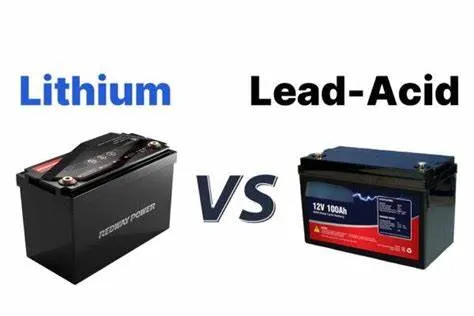Electric vehicles (EVs) require reliable battery technology, and the debate between lead-acid and lithium-ion batteries often comes down to performance, cost, and lifespan. Understanding their differences helps in making an informed choice for your EV needs.

Comparing Lead-Acid and Lithium-Ion Batteries
Energy Density and Weight
Lithium-Ion: Higher energy density, making the battery lightweight and ideal for long-range EVs.
Lead-Acid: Heavier and bulkier, reducing vehicle efficiency and range.
Lifespan
Lithium-Ion: Typically lasts 2,000-3,000 cycles, ensuring long-term value.
Lead-Acid: Lasts 300-500 cycles, leading to frequent replacements.
Efficiency and Charging Speed
Cost Considerations
Environmental Impact
Lithium-Ion: Longer lifespan reduces waste, though mining impacts exist.
Lead-Acid: Lead toxicity is a major environmental concern despite recyclability.
Why Lithium-Ion Batteries Are Preferred for EVs
Lithium-ion batteries dominate the EV market due to their lightweight design, long lifespan, and energy efficiency. These advantages make them an excellent investment for high-performance electric vehicles.
SUNKA LEAD: Your Trusted Partner in Battery Production Equipment
At SUNKA LEAD, we specialize in advanced equipment for the production and testing of lithium-ion batteries, supporting industries such as EV manufacturing, energy storage, and power tools. Our solutions include:
Our goal is to provide efficient, reliable tools for battery manufacturers worldwide. Contact us to learn how we can enhance your production line.



